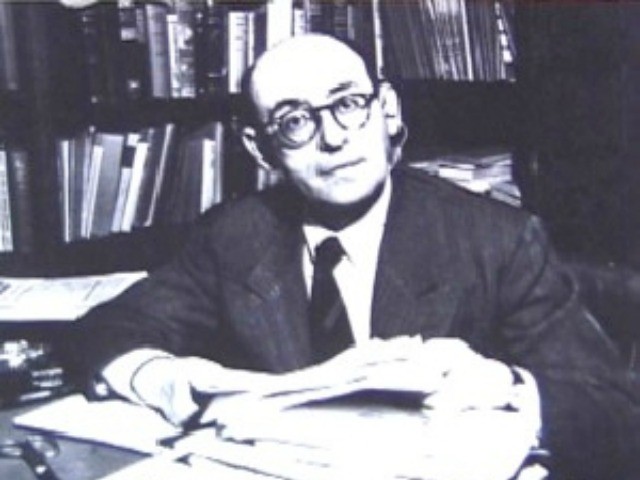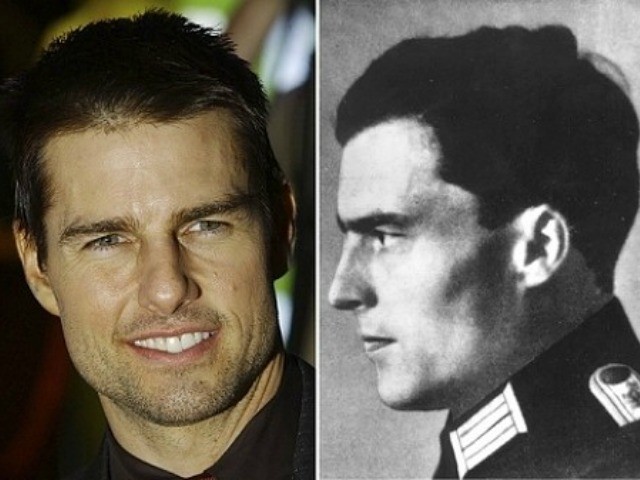
This is the third in a series of five parts based on the new book American Betrayal: The Secret Assault on Our Nation’s Character (St. Martin’s Press) by Diana West.
For many Americans, the first inkling of an anti-Nazi German resistance movement came in the movie Valkyrie, starring Tom Cruise. The 2008 movie dramatized the German underground conspiracy headed by Count Claus von Stauffenberg to assassinate Hitler on July 20, 1944.
This star-crossed plot was not only a colossal failure, it was also the anti-Nazi German resistance’s last gasp. In its aftermath, Hitler executed hundreds, if not thousands, of anti-Nazi Germans.
What is less well known–what is not taught to us–is that there was much more to this anti-Nazi movement. Its leaders inside military, clergy, and political circles made multiple attempts through multiple emissaries on behalf of multiple factions to strike deals with the British and American governments. Their terms were always and redundantly the same. They offered to overthrow Hitler and the Nazi hierarchy and surrender Germany’s armies to the British and the Americans. In exchange, they wanted British and/or American aid to keep the Red Army out of eastern and central Europe.
That was the deal-breaker. Because these anti-Nazi Germans were also anti-Communist, they hit brick walls in London and Washington, where scores of Stalin’s agents manned the policy choke-points or were able to cloud deliberations. A Soviet agent such as Franz Neumann, for example, from his seat on the German desk at the OSS, was perfectly placed to influence officials not to support these anti-Hitler plotters.

Franz Neumann
For Stalin, the war against Hitler had a secret goal neither FDR nor Churchill shared. The war had to last long enough for the Soviet Army to roll into the heart of Europe on those fleets of Lend-Lease Dodge and Studebaker trucks Uncle Sam had generously provided. As Nikita Khrushchev would say to Life magazine in 1970 of those half a million American trucks and jeeps, “Just imagine how we would have advanced from Stalingrad to Berlin without them!”
As late as 1943, the most frantic year of anti-Nazi resistance “outreach” to the Allies–and hence, the best shot to end the war early–the Red Army was still inside Russia. Clearly, it was in Soviets’ interests–and Soviet agents’ interests–to stop the German underground.
In mid-1942, Berlin AP bureau chief Louis Lochner arrived in Washington with secret information about German resistance groups from FDR’s friend Prince Louis Ferdinand. Lochner would be blocked repeatedly in his attempts to reach the president. One foiled attempt was a letter he wrote to trusted White House aide Lauchlin Currie–later unmasked as a Soviet agent.
There were other Americans who tried to convey plans from the German underground. Allen Dulles, wartime OSS agent in Switzerland, frequently cabled headquarters in Washington to apprise officials of German underground efforts, but rustled up no assistance (remember Soviet agent Neumann on the OSS German desk).
In the fall of 1943, OSS agent Theodore Morde brought to Washington an anti-Nazi German plan devised by Franz von Papen and supported by OSS chief “Wild Bill” Donovan. Morde got no farther than Robert Sherwood, the celebrated writer (and Harry Hopkins crony and, later, official biographer), then serving as co-director of the Communist-riddled Office of War Information. Sherwood heard Morde out and made his recommendation to FDR: Cancel Morde’s passport! That’s what FDR did.
FDR emissary and former Pennsylvania governor George H. Earle also had several go-rounds with anti-Nazi German groups in 1943, including one with Admiral Wilhelm Canaris, the head of Hitler’s intelligence agency, Abwehr. These, too, went nowhere.

George H. Earle (left) and Admiral Wilhelm Canaris (right)
Earle’s White House contact? Harry Hopkins.
These were opportunities not lost, but stolen. Whether the German underground would have been able to overthrow Hitler with Allied support remains an open question. That they were thwarted as a point of Soviet policy seems incontrovertible. Most of the tens of millions of people, including six million Jews, killed in World War II were still living before the underground’s many attempts were finally foiled.
The cost of Soviet infiltration of the Roosevelt administration is incalculable.
Part 4 will appear tomorrow.
Diana West is the author of American Betrayal: The Secret Assault on Our Nation’s Character.

COMMENTS
Please let us know if you're having issues with commenting.